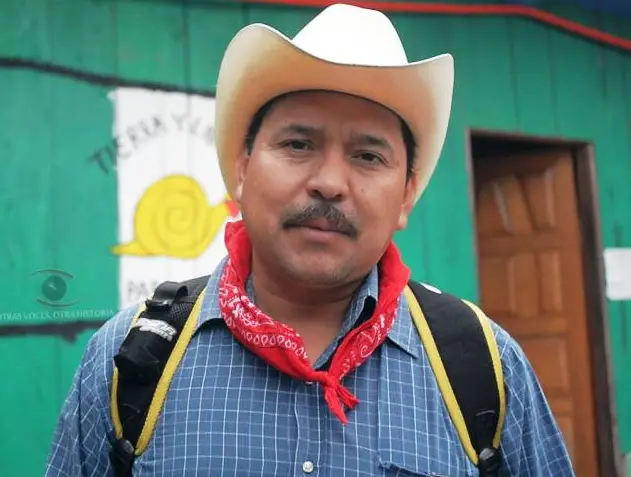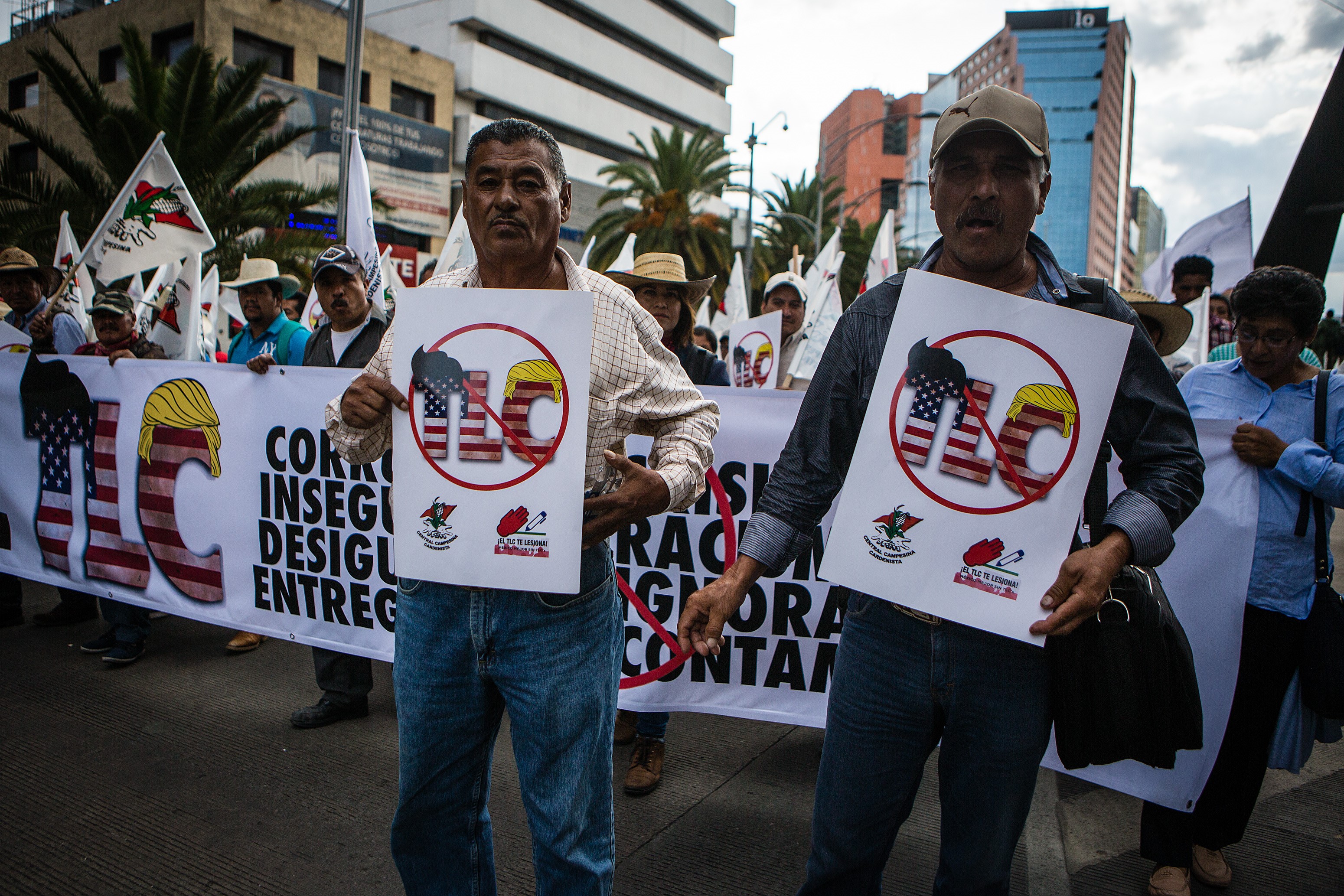“I will renegotiate NAFTA. If I can’t make a great deal, we’re going to tear it up. We’re going to get this economy running again. #Debate.” Trump tweeted that message in October 2016, a month before he was elected the 45th president of the United States.
From the beginning, his focus in the North American Free Trade Agreement (NAFTA) has been on policy that is economically advantageous for the United States. Unfortunately, for the indigenous people of Mexico, this means that America’s renegotiation of NAFTA will not focus on the problems the agreement has caused them since its implementation in 1994.
The Indigenous Side of The Trade
In Mexico, the free trade agreement resulted in an immediate outcry from the indigenous population. In fact, they organized an army to speak out about their mistreatment by the government and reclaim the lands they needed to survive. Before NAFTA, the Mexican constitution required the government to distribute land to indigenous farmers, the campesinos.
However, as Nettie Wild’s contemporary documentary, “A Place Called Chiapas,” shows, even then the government exhibited discrimination toward the indigenous people. For example, a scene in the film shows an older indigenous woman hacking down trees with an axe to clear farmland in the jungle.
That was the land that the government distributed to her and her family. As Wild explains, campesinos were often given the worst land in Mexico. NAFTA only exacerbated this discrimination.

To accommodate the trade agreement, the Mexican government needed to create large farms to export even more crops. So, they amended their constitution, halting distribution of land to indigenous farmers.
The intent was to improve the country’s economy, but this change left native people suffering yet again. As Wild put it, “Now, campesinos had nothing left to lose.” Behind masks, the Zapatista Army of National Liberation (EZLN) began their protest of NAFTA on the first day of its implementation on New Year’s Eve, 1993. They conducted an armed uprising, and the Mexican government labeled them as terrorists.
Government Reluctance to Fix Problems
Unfortunately, the Mexican government’s tendency to not recognize indigenous land rights seems to continue into the present day. According to Mario Luna, spokesperson for the National Indigenous Congress of Mexico, the Mexican government does not consult indigenous people about any decisions, especially not when it comes to land distribution having to do with projects on indigenous territory.
He also claims they are not included in discussions about mining on native lands, and that they are not even a part of the NAFTA renegotiations. When interviewed about the situation, Luna said, “This is the first time I heard about these themes, and I’ve been asking.”

To get more representation in Mexican government, Luna’s organization is campaigning to elect an indigenous woman, Maria de Jesus Patricio Martinez, as president of Mexico in the 2018 election. However, she is an independent candidate and must receive one million signatures by Feb. 19 of this year to even be considered by voters. As of Dec. 1, 2017, she had 70,000 signatures. Still, Luna is optimistic despite the odds.
Campesinos and their supporters seem to be fighting an unbalanced battle against old trends in their own government and an unsympathetic United States. President Trump does not seem concerned with the effects of NAFTA on indigenous Mexicans. So far, he has primarily made demands related to American job production and other economic facets of the agreement.
The president and his negotiation team are trying to swing deals like requiring cars sold in the North American region to have half of their parts produced in the United States to avoid tariffs. While this perspective may appeal to the average American voter, a purely economic approach will once again ignore the concerns of disadvantaged minorities like indigenous people.
International Influences on the Matter
So, not only do campesinos lack faith in the integrity of their own government, but they also cannot count on the United States to represent their interests. Two out of the three countries renegotiating the trade agreement are interested in economic growth rather than the implications the policy has for the indigenous farmers of Mexico, just as they were at NAFTA’s inception in the ’90s.
However, Canada has taken both an economic and human rights approach. As Wild put it in her documentary in 1998, “In Canada, we debated the North American Free Trade Agreement. Here in Chiapas, they went to war over it.” Canada continues to recognize the potential effect of NAFTA on Mexico’s indigenous population, and they intend to address the ills of the original agreement.
The country has drafted a chapter for a renegotiated NAFTA that emphasizes the rights of indigenous people. Kenneth Deer, a Haudenosaunee Confederacy representative briefed on negotiations, claims that this chapter also mentions starting a trade committee that addresses the needs of indigenous people.
The committee, he says, would have representatives from all three countries. According to Deer, Mexico was “optimistic and complimentary about the text” while America did not receive it with the same enthusiasm. This proposed chapter, sponsored by Canada, could give a voice to the ignored and most vulnerable segment of Mexico’s population.
What Is the Future for NAFTA and Indigenous Mexicans?
There is still one more wildcard in the negotiation table, and his reputation is clear. President Trump’s primary concern has always been the economic welfare of America. He campaigned on it. He got elected on it. He regularly posts on Twitter about it to remind his supporters why he is the big cheese. He would not push a change on Mexico unless it economically benefited the United States.
His more recent tweets mention pulling out entirely. In August of last year, he tweeted, “We are in the NAFTA (worst trade deal ever made) renegotiation process with Mexico & Canada. Both being very difficult, may have to terminate?” President Trump is famous for playing hardball in negotiation and probably does not want to waste valuable bargaining power on mitigating indigenous rights abuses in a foreign country. That is, if he even knows about the history of NAFTA and its impact on the native people of Mexico.
















